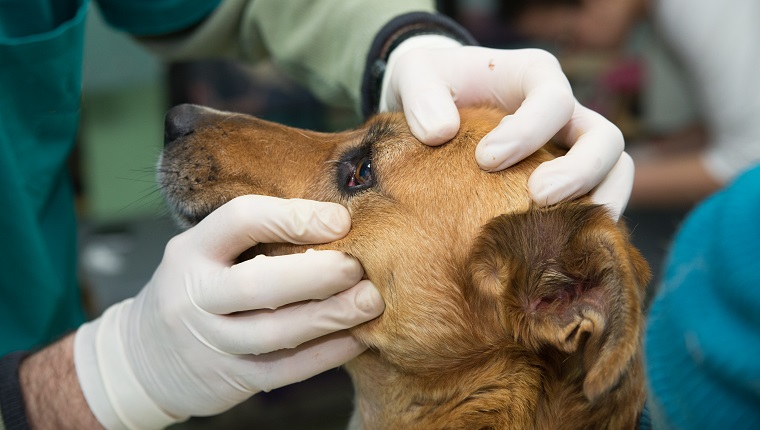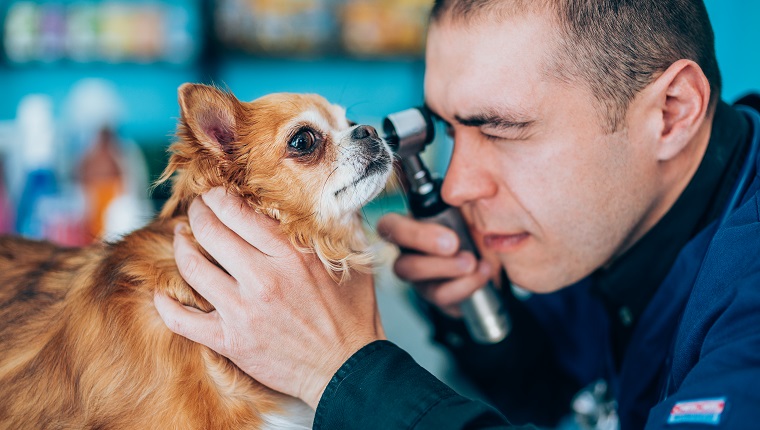Blind quiet eye in dogs is a medical condition that involves a dog losing vision in one or both of their eyes but without any obvious, visible signs of eye injury or inflammation. It often results from a number of underlying conditions.
Older dogs and canines who have developed high blood pressure or diabetes have the highest risk of developing this condition
If you see signs that your dog might be suffering from eye or vision issues, then you must consult your veterinarian for a proper diagnosis and course of treatment. Here’s what you should know about the symptoms, causes, and treatments of blind quiet eye in dogs.
Symptoms Of Blind Quiet Eye In Dogs
Blind quiet eye in dogs brings on symptoms that affect a dog’s vision. Some of the most common symptoms include:
- Moving in a clumsy fashion
- Lack of willingness to move around
- Not seeming as responsive as usual
- Having difficulty navigating areas they’re familiar with (around the house or yard, for example)
Causes Of Blind Quiet Eye In Dogs

There are a range of causes of blind quiet eye in dogs. Some of the most common causes include:
- Cataracts
- Degenerative retinal disorders
- Lenses that cannot focus correctly
- Lead poisoning
- Ivermectin poisoning
- Optic nerve hypoplasia
- Issues affecting the optic nerves (including trauma, cancer, and inflammation)
Veterinary Treatments
If you suspect that your dog is suffering from blind quiet eye, then your veterinarian will want to carry out a fully physical examination. This will include blood and urine tests before a thorough ophthalmic examination focusses on the condition of the eyes.
In some cases, vets can use a procedure known as electroretinography to help measure the level of electrical responses in the retina.
When providing treatment, the course of action will depend on the precise underlying condition. In cases that involve a detached retina or cataracts, vets might suggest a surgical procedure to try and correct the condition.
If an infection is involved, vets may try a course of antibiotics. As ever, if your vet prescribes medication for your dog, it is vital that you stick to the correct frequency and dosage instructions and complete the full course of medicine.
While your dog recovers at home, it is important to adapt your living situation so that your dog can move around freely and without bumping into objects. In some cases, vets also advise limiting your dog’s exercise during recovery.
Remember that dogs can live full lives without their vision. Even senior dogs can adjust to life with patience and training.
Has your dog developed blind quiet eye? What steps have you taken to help them with their vision loss? Tell us all about it in the comments below.




